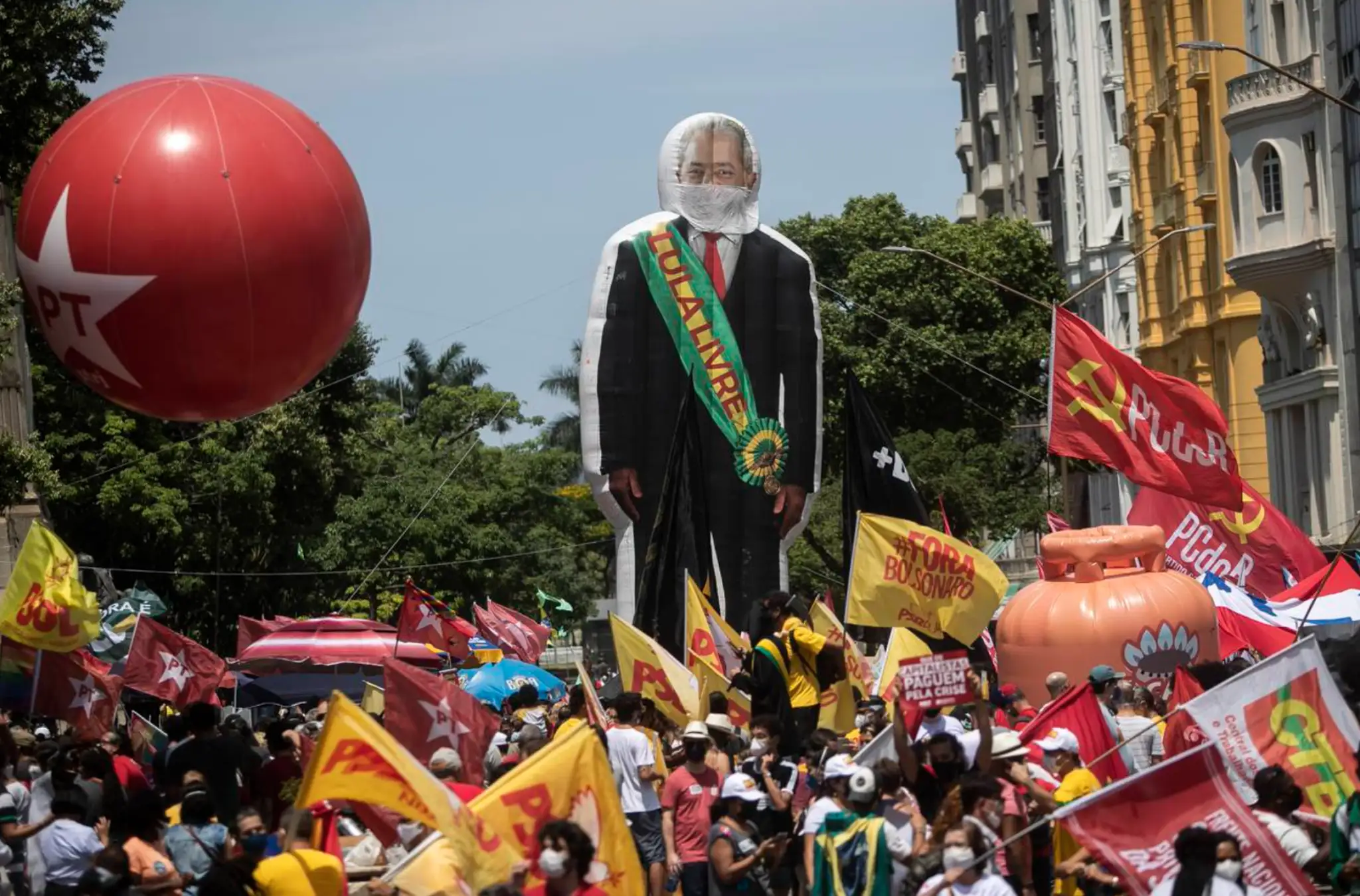Coauthor Francisco Denis Pereira
On January 1st 2023, Luis Ignacio Lula da Silva, was inaugurated as president in his third term in office. After four years of Jair Bolsonaro’s government, there are high expectations for Lula’s third term. Brazil is both a key world and regional player, with one of the largest economies in the world and a leading power on many issues. During Lula’s previous presidential terms, Brazil assumed a prominent role in global politics, South American regionalism was boosted, and the social and mobility agendas for regional cooperation were prioritized, creating one of the most liberal regional migration regimes in the world. How will Lula’s foreign policy agenda pan out during this third term in office? How will this affect regional integration in South America? And which are the challenges that Lula’s regional agenda will face?
Foreign Policy and relations with the South American neighbourhood
Jair Bolsonaro’s government was characterized by Brazil’s relatively international isolation, particularly in relation to South America. This was a sharp break with the past as Brazil had been involved in the making, organization, funding and leadership of some of the main regional organizations including the Union of South American Nations (UNASUL, in Portuguese) and the Community of Latin American and Caribbean States (CELAC). Indeed, during his first two terms in office, Lula’s foreign policy had prioritized the construction of South American regional governance mechanisms, in which Brazil played a decisive role as a way of positioning the country as a regional leader. Bolsonaro’s government broke the Brazilian diplomatic tradition of prioritizing South American regional integration, instead adopting a new rhetoric in international fora that put Brazil more in line with far right and illiberal governments, such as those of Donald Trump, Victor Orban and Benjamin Netanyahu.
After winning the elections in October 2022, Lula and his government team have set the tone of how the new government’s foreign policy will be. The new Lula’s foreign policy strategy was delineated by a Working Group on Foreign Relations, integrated by diplomats, academics, consultants and representatives of different political parties and civil society, who elaborated a report whose main recommendations are currently being implemented. Brazil’s renewed global and regional strategy can be witnessed by the structure of the national bureaucracy. One of the main shifts is the creation of a Secretariat for Latin America within the Ministry of Foreign Affairs (Itamaraty), which was previously part of the Secretariat for the Americas. Additionally, another two separate Secretariats for Africa and the Middle East were established. To further broaden the scope of Brazilian foreign policy, the new administration created further Secretariats for Environment and Climate, Science and Technology and the ‘International Brazilian Community’ (Brazilians abroad).
Lula demonstrated signs of this foreign policy shift early in his mandate in January 2023, on his first international trip to Argentina, the traditional ally in the region and to attend the CELAC Presidential Summit. The presence of a Brazilian president was highly symbolic, especially after three years of absence during the Bolsonaro administration. Lula also visited Uruguay during that trip. Following this line, the main change that will probably be observed during the Lula administration is a higher profile of Brazil in regional fora and the promotion of regional and multilateral solutions to common challenges in the area of migration, in line with Brazil’s foreign policy priorities. To this end, his first foreign policy move was to re-join the GCM. To summarize, Lula’s third term foreign policy puts South America at the centre of Brazil’s global strategy reconfiguration.
Challenges of Lula’s third term
This time, Lula’s scope for action is limited and the chances of developing such an ambitious agenda of reforms, economic growth, and social justice are constrained by several factors. The new administration is facing a very different scenario than it did in the 2000s. At the domestic level, the last election was the most polarized in recent Brazilian history. This means that there are much more veto players, adding to ideological polarization and economic instability. For instance, Brazilian migration governance, traditionally characterized by its liberal and progressive character, got increasingly securitized due to a change in the configuration of the main governance actors. The military were assigned in key positions, such as in the management and coordination of Operation Welcome, a multiagency operation at the border with Venezuela, aimed at receiving, sheltering and ‘interiorizing’, i.e., transferring the incoming migrants to other Brazilian states. It follows that one of the main challenges that Lula’s migration policy will face is the de-securitization of Brazilian migration governance, which could be done by taking some responsibilities away from the Federal Police ̶ the current state agency responsible for regularizations and asylum requests. However, that would be an enormous challenge.
Additionally, Lula’s coalition does not control the Congress, and 14 out of 27 Brazilian states are governed by the opposition. At the international level, the scenario is equally challenging. Brazil is a member of the BRICS at a time of war in Ukraine and increasing US-China rivalry, which puts Brazil in a difficult place for finding a middle ground and coordinating positions with the rest of the BRICS partners. Lula will probably build from Brazilian diplomacy’s long-term experience and reputation for conciliating positions and bridging conflicting ideas and forces around the world. This will rather reinforce the pragmatism and the search for cooperation and multilateral solutions of Lula’s third term in office.
Lula’s return to Planalto and Brazil’s renewed participation in regional organizations paints an optimistic scenario for South American regionalism, even if a challenging one. Brazil will likely seek consensual leadership with its neighbors and stronger economic and political coordination to strengthen regional projects, such as CELAC and UNASUR. This is an opportunity to revisit and deepen South American regional integration beyond trade while addressing topics such as regional identity, education, and culture in a context of increasing human mobility.
Francisco Denis Pereira is a master and doctoral student in Integration Sciences at the Latin American Integration Program at the University of São Paulo (PROLAM/USP). He currently holds the position of international advisor to the Institutional Relations Secretariat of the Presidency of the Federative Republic of Brazil.













